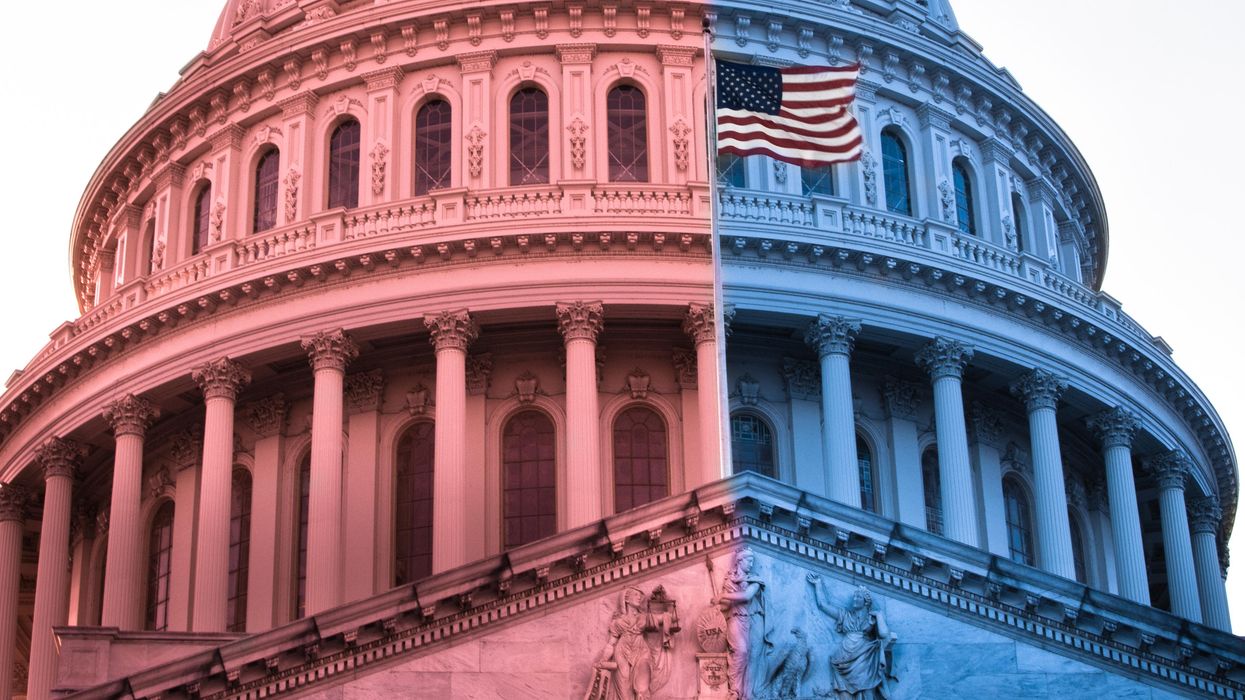Anderson edited "Leveraging: A Political, Economic and Societal Framework" (Springer, 2014), has taught at five universities and ran for the Democratic nomination for a Maryland congressional seat in 2016.
Scholars have debated for years whether the United States is polarized. The minority view is that the country is not polarized.
Morris Fiornia has led the charge for that position. He and his Stanford colleague Samuel Abrams, along with Harvard's Jeremy Pope, staked out this ground in "Culture War?," a 2004 book that used polls and surveys to argue our country is not all that bitterly divided over major public policy issues.
To be sure, since the third edition came out a decade ago the country has probably become more divided — especially during the four years Donald Trump was president.
Still, we need to consider the possibility that the nation's population is not polarized, even though the politicians the people have sent to Washington are undeniably polarized.
Back in 2014, columnist Greg Sargent of The Washington Post relied on polling data to lay out the case for widespread national agreement on an array of supposed hot-button topics. There was broad support for immigration reform leading to a path for citizenship, for example, for a big public works program and for job training tax breaks offset by higher taxes on the rich. And there was broad opposition to cutting Social Security and Medicare.
Tribal tendencies have ratcheted up in the Trump years, especially on issues related to race and ethnicity. Most polls, however, still show solid majorities wanting to see a path-to-citizenship immigration policy, major infrastructure spending and the status quo for the social safety net.
But in Washington, the Democrats and Republicans are almost totally split. Only a few members on either side in the 50-50 Senate display any tendency to support positions of the opposing party. The same is true in the House, now with the narrowest Democratic majority in 76 years.
So while Americans still may disagree about many things, the claim that Capitol Hill is a microcosm of the country is manifestly untrue. Not only is there widespread agreement among the people on many top-tier policies, but also the electorate is substantially less partisan than Congress. While all 535 lawmakers have affiliated with one of the major parties, the same is true for only 60 percent of voters.
There may be plenty of visible signs and audible voices of opposition to President Biden and his fellow Democrats now in charge of Washington policymaking. But for every member of a white supremacist group, several orders of magnitude more Americans disavow such groups. And for every act of violence by a citizen on the right or the left, there are thousands who have not and would never commit violence in political protest.
It is also true that as many as 60 million Americans do not view Biden as the legitimate president. Yet it does not follow that, on policy questions, these people are polarized against the 81 million who voted to make him president — or against the 80 million who did not vote at all last fall.
Also remember, as political scientists have long reminded us, that voting is only one part of citizenship. In recent decades the nation has seemed to be positioned for something close to a civil war before every election. But while wearing their red or blue uniforms for campaign season, millions have stayed in agreement on plenty of issues. And once the voting is over, people have tended to drop their polarized postures.
In other words, our identity as "voters'' dominates for only a short time every two years, when the choices are often binary. But we are always maintaining our identities as "citizens" — people who espouse subtlety and collaboration on the issues, volunteer for myriad public causes and take pride in helping educate others. Who we vote for does not exhaust who we are as citizens.
Progressives point to "affective polarization" and "tribal identity politics" as the causes of the societal conflicts that truly divide us. Yet the question still remains whether such cultural differences also guarantee divides on public policy questions involving the poor and elderly, crumbling infrastructure, job creation, civil rights and health care.
There was 70 percent public support for Biden's $1.9 trillion stimulus package, including 41 percent backing from Republicans. Isn't that evidence to support the view we are not polarized?
The challenge is to seek a resolution of the tension between Washington, which has a problem of polarization, and the country, which does not. Biden probably got elected with many hoping he could lead the effort to get this done. But the responsibility also rests with the congressional leaders of both parties to help forge this new model of legislative success.
And it is up to the nonprofit leaders, media pundits, the clergy and the citizens themselves to tell Washington to stop projecting its own polarization onto the public. If the politicians can resolve their own discord, and the public can transform its understanding of itself, there is a path forward.




















